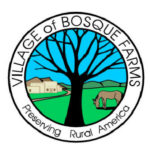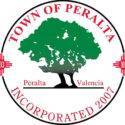There is a new public health order statewide to help curb the spread of the novel coronavirus.
Starting Monday, Nov. 16, indoor and outdoor dining will be prohibited, nonessential businesses such as hair salons, barber shops and gyms will be forced to close for the time being and essential businesses — such as grocery stores and pharmacies — can operate at 25 percent capacity.
The health order runs through Nov. 30.
Gov. Michelle Lujan Grisham is also limiting lodging capacity to 25 percent for those that have completed NM Safe Certified training, down from 60 percent in the previous health order.
Houses of worship are now limited to a capacity of 25 percent or 75 bodies — “whichever is smaller,” Lujan Grisham said — which is a decrease from 40 percent capacity.
Lujan Grisham said activities such as dining out, and heading to close contact businesses such as gyms and salons, has “exasperated community spread.”
K-12 public schools, for now, will remain unaffected by the new health order, though schools currently in a remote learning model can’t move over to a hybrid model during the health order, according to a press release from the New Mexico Public Education Department.
Los Lunas Schools and School of Dreams Academy are currently in a remote learning model. The Belen Board of Education on Tuesday, Nov. 17, will hold a special meeting to decide whether or not to return to remote learning for the rest of the calendar year.
After the two-week public health order expires at the end of the month, the state will implement a three-tier, county-by-county system — using county COVID-19 data — to “establish reopening benchmarks for each county.”
The governor said a special session will be held “as quick as we can” to help with economic impact in the state. She didn’t give an exact date as to when, but the next scheduled regular session is more than two months away in January.
On Thursday, Nov. 12, the state recorded a record-high 1,753 cases statewide, 57 of which were in Valencia County. And on Friday, Valencia County added another 49 cases of COVID-19.
Statewide, there are 471 people currently hospitalized with 67 on ventilators. Hospitalizations have increased by 214 percent in the last two weeks. Lujan Grisham said if a new, stricter public health order wasn’t enforced, that would “crush our current health care system and infrastructure.”
There has also been a significant uptick in the number of deaths due to coronavirus statewide. Over the last two weeks, there have been 182 deaths attributed to complications from COVID-19 compared to 75 in the two weeks before that. In Valencia County, there have been 11 deaths to date with the addition of one death being recorded on Thursday.
ESSENTIAL BUSINESSES
Essential businesses are any business or non-profit falling within one or more of the following categories. These businesses may operate but must reduce in-person workforce and operations to the greatest extent possible for the duration of the current public health order, through Nov. 30.
- Health care operations including hospitals, walk-in-care health facilities, pharmacies, medical wholesale and distribution, home health care workers or aides for the elderly, emergency dental facilities, nursing homes, residential health care facilities, research facilities, congregate care facilities, intermediate care facilities for those with intellectual or developmental disabilities, supportive living homes, home health care providers, drug and alcohol recovery support services, and medical supplies and equipment manufacturers and providers;
- Homeless shelters, food banks, and other services providing care to indigent or needy populations;
- Childcare facilities;
- Grocery stores, supermarkets, food banks, farmers’ markets and vendors who sell food, convenience stores, and other businesses that generate more than one third of their revenue from the sale of canned food, dry goods, fresh fruits and vegetables, pet food, animal feed or supplies, fresh meats, fish, and poultry, and any other consumable food and drink products;
- Farms, ranches, and other food cultivation, processing, or packaging operations;
- Infrastructure operations including, but not limited to, public works construction, commercial and residential construction and maintenance, self-storage facilities, airport operations, public transportation, airlines, taxis, private transportation providers, transportation network companies, water, gas, electrical, oil drilling, oil refining, natural resources extraction or mining operations, nuclear material research and enrichment, those attendant to the repair and construction of roads and highways, gas stations, solid waste collection and removal, trash and recycling collection, processing and disposal, sewer, data and internet providers, data centers, technology support operations, and telecommunications systems;
- Manufacturing operations involved in food processing, manufacturing agents, chemicals, fertilizer, pharmaceuticals, sanitary products, household paper products, microelectronics/semiconductor, primary metals manufacturers, electrical equipment, appliance, and component manufacturers, and transportation equipment manufacturers;
- Services necessary to maintain the safety and sanitation of residences or essential businesses including security services, towing services, custodial services, plumbers, electricians, and other skilled trades;
- Veterinary and livestock services, animal shelters and facilities providing pet adoption, daycare, or boarding services;
- Media services;
- Automobile repair facilities, bike repair facilities, and retailers who generate the majority of their revenue from the sale of automobile or bike repair products;
- Utilities, including their contractors, suppliers, and supportive operations, engaged in power generation, fuel supply and transmission, water and wastewater supply;
- Hardware stores;
- Laundromats and dry cleaner services;
- Crematoriums, funeral homes, and cemeteries;
- Banks, credit unions, insurance providers, payroll services, brokerage services, and investment management firms;
- Businesses providing mailing and shipping services;
- Laboratories and defense and national security-related operations supporting the United States government, a contractor to the United
- States government, or any federal entity;
- Professional services, such as legal or accounting services, but only where necessary to assist in compliance with legally mandated activities; and
- Logistics and other businesses that store, transport, or deliver groceries, food, materials, goods or services directly to residences, retailers, government institutions, or essential businesses.
The businesses falling into one or more of the bolded categories are identified as essential retail spaces.
Those entities may operate in-person services in a more limited fashion: They may not exceed either 25 percent of its maximum occupancy, as determined by the relevant fire marshal or fire department, or 75 customers in the business space at any given time, whichever is smaller. They must close at 10 p.m.
More Information
Gov. Michelle Lujan Grisham and state health officials on Wednesday announced several tightenings intended to clarify the intent of the emergency public health order effective through Monday, Nov. 30, and to further underscore the imperative that New Mexicans must absolutely remain at home except for only those trips that are most essential for health, safety and welfare.
The changes restrict “big box” stores and other large retailers from operating in-person services. Complete definitions are outlined below.
The changes are effective beginning Thursday, Nov. 19, through Nov. 30.
The amendments as outlined in the public health order itself include:
•The definition of a “retail space” has been tightened and clarified to ensure only the most essential businesses are permitting in-person services during this extreme public health emergency.
- Essential retailers are defined as follows: Grocery stores, supermarkets, food banks, farmers’ markets and vendors who sell food, convenience stores, and other businesses that generate more than one-third of their revenue from the sale of canned food, dry goods, fresh fruits and vegetables, pet food, animal feed or supplies, fresh meats, fish, and poultry, and any other consumable food and drink products; automobile repair facilities, bike repair facilities, and retailers who generate the majority of their revenue from the sale of automobile or bike repair products; hardware stores; laundromats and dry cleaner services.
- These entities may operate but must reduce operations and staff to the greatest extent possible; may have no more than 75 customers inside or exceed 25 percent of maximum occupancy at any time, whichever is smaller; and must close by 10 p.m. each night. These requirements have not changed.
- Under this amended definition, “big box” stores and other large retailers that do not generate more than one-third of their revenue from the above identified food and drink products may not operate in-person services. A “big box” or large retail space such as Hobby Lobby and Ross Dress for Less, then, is not permitted to operate in-person services under the above identified stipulations.
•Businesses that are not identified as “essential” may operate to the minimum extent necessary to provide curbside pickup and/or delivery of goods to customers.
•Animal grooming services may not operate.
The state also issued the following guidance related to frequently asked questions about the public health order:
•Plant nurseries and Christmas tree lots may only operate to the extent to the extent allowed for any business not identified as an essential business, meaning they “may operate to the minimum extent necessary to provide curbside pickup and/or delivery services to customers.”
For frequently asked questions and an explainer of essential businesses, and to read the emergency public health order, please visit the cv.nmhealth.org website.
















